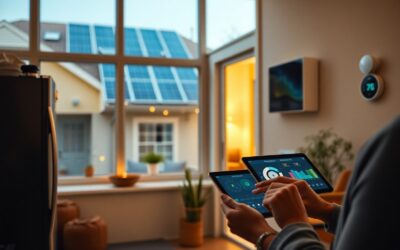There’s a significant opportunity for you to reduce your utility bills with a well-crafted strategy. Understanding your consumption patterns and making informed adjustments can lead to substantial savings. From energy-efficient appliances to smart usage of electricity and water, there are various approaches you can adopt to take control of your expenses. This blog post will equip you with the insights and practical tips needed to effectively lower your bills while maintaining comfort in your home.
Understanding Your Utility Bills
Before you can effectively reduce your utility expenses, it is necessary to understand exactly what your bills entail. Familiarising yourself with the components of your utility statements will help you identify areas where savings are achievable. By scrutinising your bills, you will gain insights into your consumption patterns and highlight potential opportunities for efficiency improvements.
Breakdown of Charges
Below is a typical structure of utility charges that appear on your bill, including fixed fees, variable costs based on usage, and taxes. Understanding each segment allows you to pinpoint where your money is going. Often, the bulk of your expenses may stem from a combination of base service fees and the amount of energy or water consumed during the billing period.
Identifying High Usage Areas
Breakdown of your consumption is necessary to identify high usage areas within your home. By examining historical usage data, you can detect spikes in energy or water consumption that may correlate with specific appliances or habits. This provides you the opportunity to implement energy-saving measures effectively.
To further refine your strategy, conduct an audit of your home’s energy consumption, paying particular attention to appliances like heaters, air conditioners, and water heaters, as these can often lead to significant excess usage. Additionally, examine your habits, such as how often lights are left on or how long showers are taken, to determine if changes can lead to substantial savings. By addressing these high usage areas, you can make targeted adjustments, ultimately assisting you in lowering your utility bills significantly.
Energy Efficiency: The Key to Cost Reduction
Assuming you want to reduce your utility bills, prioritising energy efficiency is crucial. By adopting energy-efficient practices and technologies, you can significantly lower your consumption, leading to substantial savings on your monthly bills. Focused efforts in this area not only benefit your wallet but also contribute to a more sustainable environment, making it a win-win situation for you and the planet.
Home Insulation Techniques
With proper home insulation, you can prevent heat loss and maintain a comfortable temperature in your living spaces. Techniques such as loft insulation, cavity wall insulation, and double glazing can play a key role in minimising energy usage. By investing in these measures, you’ll ensure that your home retains warmth in winter and keeps cool in summer, ultimately reducing your utility bills.
Upgrading Appliances
Against the backdrop of rising energy costs, upgrading to energy-efficient appliances can yield significant savings over time. By choosing appliances with high energy ratings, you’ll not only reduce your energy consumption but also have access to modern features that enhance convenience in your daily life. Investing in energy-efficient models is a smart move for any home, providing both cost savings and environmental benefits.
Appliances are vital elements in your home that can contribute substantially to your energy bills. When you utilise energy-efficient appliances, you greatly reduce your overall usage and costs. Look for appliances that bear the Energy Star label or similar certifications, as these models are designed to consume less energy while maintaining high performance. Even though the initial outlay may seem intimidating, the long-term savings on your utility bills can be quite remarkable, permitting you to enjoy a more economical lifestyle while also playing your part in reducing environmental impact.
Water Conservation Strategies
Any effective water conservation strategy can significantly reduce your utility bills while also benefiting the environment. By implementing strategies that promote the efficient use of water in your home, you can cut down on waste and lower your expenses. Simple adjustments in your daily habits can lead to impressive savings over time.
Fixing Leaks and Drips
With a keen eye for detail, inspecting your plumbing for leaks and drips can save you a substantial amount of water—and money. Addressing even minor leaks promptly prevents them from becoming larger issues, ensuring that you do not pay for wasted water.
Efficient Water Use Practices
On a practical level, adopting efficient water use practices in your home can lead to noticeable reductions in your water consumption.
This includes habits such as taking shorter showers, using a broom instead of a hose to clean driveways, and only running dishwashers and washing machines with full loads. By being mindful of your water usage, you can make a strong impact on your household bills. Additionally, investing in wisely designed appliances can further minimise water consumption and your costs. Every drop counts; making these small changes not only conserves our precious resources but also results in substantial financial savings over time.
Smart Technology Integration
Despite the initial investment, integrating smart technology into your home can significantly reduce your utility bills. Advanced devices not only enhance convenience but also optimise your energy consumption. By taking advantage of smart solutions, you can obtain real-time data that assists in making informed decisions, leading to substantial cost savings.
Smart Meters and Thermostats
After installing smart meters and thermostats, you gain precise control over your energy usage. These devices allow you to track your consumption patterns and adjust your settings accordingly. This means you can regulate your heating and cooling more effectively, ensuring you’re not wasting energy when it’s not needed.
Energy Monitoring Systems
Above all, energy monitoring systems provide you with a comprehensive overview of your household’s energy use. By assessing your usage patterns, you can pinpoint opportunities for savings and optimise your consumption.
Systems that monitor your energy consumption in real-time offer you the ability to identify and address inefficiencies in your home. This allows you to make informed changes, such as switching off appliances during peak hours or investing in energy-efficient alternatives. With clear insights into your energy use, you can take action to reduce waste and lower your utility bills, leading to substantial financial savings over time.
Behavioral Changes for Savings
To achieve significant reductions in your utility bills, you must consider behavioural changes that can enhance your energy efficiency. By adopting mindful habits such as turning off lights when leaving a room, using appliances during off-peak hours, and conserving water, you can make a notable impact on your overall consumption. Even small adjustments can translate into substantial savings over time, allowing you to enjoy the benefits of a more sustainable lifestyle.
Adjusting Usage Patterns
Behind every utility bill, there are patterns in energy consumption that you have the power to modify. Identifying peak usage times and adjusting your daily routines can lead to optimised energy efficiency. For example, running your dishwasher or laundry during the night when rates are lower can significantly reduce costs.
Importance of Regular Maintenance
Between the convenience of modern appliances and the need for efficiency, regular maintenance often takes a back seat. However, neglecting this aspect can lead to unexpected failures and increased energy consumption. Conducting routine checks on your heating and cooling systems, sealing drafts, and cleaning filters can ensure everything operates at peak performance. This diligence not only extends the life of your appliances but also helps you avoid costly repairs and inflated bills.
Even small acts of maintenance can have a significant impact on your utility costs. By proactively addressing issues such as clogged filters or leaky faucets, you prevent energy loss and water wastage. Regular inspections can catch potential problems before they escalate, ensuring that your systems operate efficiently. Staying on top of maintenance reduces your risk of shockingly high utility bills and contributes to a more environmentally friendly home.
Exploring Alternative Energy Sources
Many homeowners are now seeking alternative energy sources to reduce their reliance on traditional utility services. By embracing renewable energy, you can not only cut down on your utility bills but also contribute to environmental sustainability. Options such as solar, wind, and community energy programmes provide innovative ways for you to harness energy more economically and efficiently.
Solar Energy Options
The adoption of solar energy has become increasingly accessible and affordable. With various options available, such as solar panels for your home or solar water heaters, you can substantially lower your energy costs while utilising a clean, renewable energy source.
Community Energy Programs
Alongside personal initiatives, community energy programs offer collective solutions to energy savings. These programmes encourage local participation in renewable energy projects, allowing you to obtain benefits from shared resources, thus reducing overall expenses.
In fact, engaging with a community energy programme can lead to significant savings on your utility bills. These initiatives often involve collaboration with local governments or energy cooperatives, which can result in substantial discounts on energy costs. By joining forces with your neighbours, you can also influence energy policy, promote sustainable practices, and make a positive impact in your community. This collaborative approach not only lessens individual financial burden but also strengthens community ties, promoting a shared commitment to a greener future.
Conclusion
From above, it is evident that you can effectively craft a meticulous strategy to slash your utility bills by identifying energy-wasting habits, investing in energy-efficient appliances, and regularly reviewing your utilities. Implementing simple changes, such as adjusting your thermostat and utilising smart power strips, can lead to significant savings over time. Staying informed about your energy consumption and taking proactive steps will empower you to maintain control over your utility expenses, ultimately enhancing your financial well-being.
FAQ
Q: What steps can I take to analyse my current utility bills effectively?
A: Start by reviewing your past utility bills to identify patterns in usage and costs. Look for peaks in consumption during certain seasons or months, as well as the specific charges that contribute most significantly to your total bill. Consider breaking down your usage by category, such as heating, cooling, water, and electricity. Online tools and mobile applications can help you track your consumption over time, enabling you to make informed decisions based on historical data.
Q: How can I optimise my energy usage to reduce costs?
A: Optimising energy usage can be achieved through a variety of methods. Firstly, consider upgrading to energy-efficient appliances that consume less power. Implementing smart home technology, such as programmable thermostats, can help manage heating and cooling more effectively. Additionally, conduct regular maintenance on your heating and cooling systems to ensure they function efficiently. Simple changes like sealing drafts in windows and doors or adjusting usage times to off-peak hours can also contribute significantly to lowering your energy costs.
Q: Are there specific behavioural changes I can adopt to further decrease my utility bills?
A: Yes, adopting mindful habits can lead to significant savings on utility bills. Start by being more conscious of your energy consumption; for example, turn off lights when leaving a room and unplug devices that are not in use. Consider limiting the temperature setting on your thermostat by just a few degrees or showering for shorter durations to conserve water. Additionally, encourage all household members to participate in energy-saving practices to maximise the effect of your collective efforts.



0 Comments